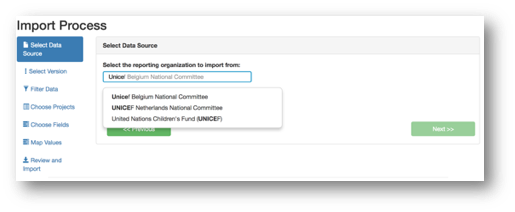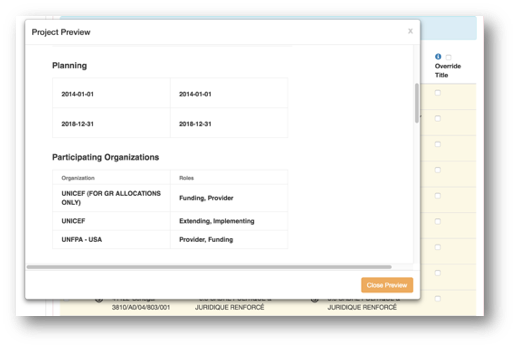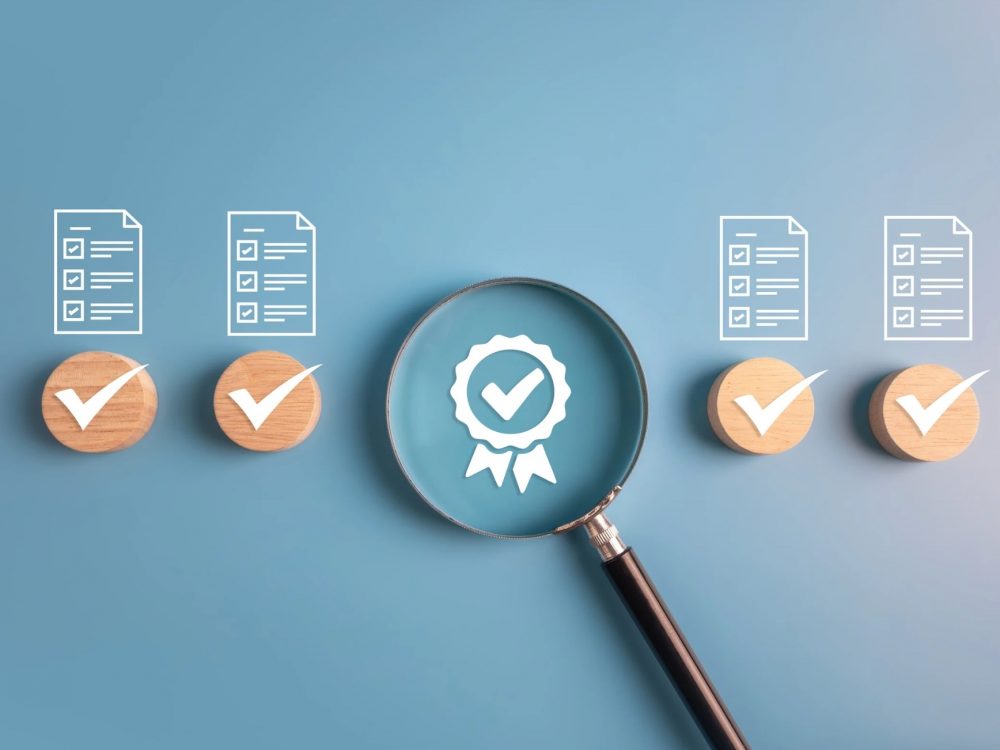Streamlining the IATI-AIMS Import Process
At Development Gateway (DG), we continually emphasize learning and improving on established tools, seeking out new ways of designing to optimize impact. In recent months, as part of the International Aid Transparency Initiative (IATI) Data Use Fund, we’ve made several key improvements to our existing IATI-AIMS Import Tool that have made it more user-friendly and sped up the process of importing IATI data into Aid Information Management Systems (AIMS). These improvements build on lessons learned from work we completed earlier this year to import and use IATI data in country AIMS, in Senegal and Madagascar.
In determining what improvements would be most impactful, we geared our decisions towards streamlining and consolidating the IATI-AIMS import process as much as possible. One of the biggest improvements we made was using the IATI API, enabling users to be able to automatically search for and use specific IATI files in the Import Tool.

Figure 1: Improvements to the IATI-AIMS Import Tool include the ability to search for Reporting Organizations, and automatically pull their data from the IATI API
With this enhancement, users no longer need to be trained on how to find and download files from the IATI Registry – instead, the process is simplified, housed from start to finish within the Import Tool itself.
Further simplifying the process, we added “tooltips” with the IATI field definitions so that users can hover over an icon to see the IATI definition for specific fields without having to access the codelist to do so. Additionally, we built the capability to preview the IATI data, allowing users to view and understand what the data will look like once it is imported without having to use an outside tool to view it.

Figure 2: IATI Project Preview
After making these improvements, we have been able to upgrade the Senegal IATI-AIMS tool and train government users and other interested development partners (including UNICEF, UNFPA, and the Italian Agency for Development Cooperation) on the new functionalities.
In line with DG’s commitment to open source tools, each of these changes have been added to the IATI-AIMS Import Tool open source code, available to the public on GitHub. In building on this work, we’ve taken a step forward in easing the process of importing IATI data into AIMS, further reducing the reporting burden for those that choose to use IATI to report to AIMs. We will continue making improvements as we learn more about what works – and what doesn’t – in building effective and useful tools in expanding IATI data use.
Share This Post
Related from our library

Introducing The HackCorruption Civic Tech Tools Repository
Introducing the Civic Tech Tools Repository: an open-source hub of digital solutions to fight corruption. Designed for growth through GitHub contributions, it brings together tools, code, and resources across six key areas for HackCorruption teams and beyond.

From Standardization to Specificity: Localizing Multi-Country Research
Multi-country research must balance consistency with local realities. While standardization allows reliable comparisons and generalizable insights, local context shapes outcomes. This blog explores how programs can strike that balance effectively.

Economic Toll of Tobacco-Related Diseases in Kenya: New Research Findings
Development Gateway: An IREX Venture (DG) is pleased to announce the publication of a research manuscript on the Economic Costs of Tobacco-Related Illnesses in Kenya. This research was carried out as part of the Tobacco Control Data Initiative (TCDI) activities in Kenya and is part of a broader report on Morbidity and Mortality from Tobacco Use in Kenya.